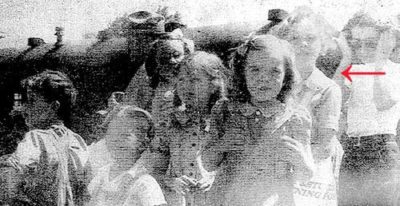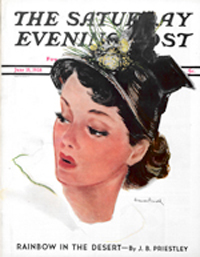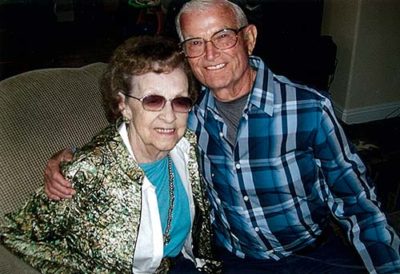Inaugural Addresses: the Good, the Bad, and the Confused
This week, when a new president is sworn into office, America will hear its 58th inaugural address. The country has been listening to presidents’ introductory speeches since the tradition began 228 years ago with George Washington.
It’s surprising that we remember so little of those speeches.
We know the inspiring words of Lincoln’s second inaugural address: “With malice toward none, with charity for all…” And most Americans are familiar with the phrase, “The only thing we have to fear is fear itself,” even if they don’t know it came from Franklin Roosevelt’s first inaugural address. A generation was inspired by John Kennedy’s inaugural address, with its memorable line, “ask not what your country can do for you …”
The inaugural address has been the president’s chance to present the vision and goals for his administration, but it has also been a time to express his trust in the country and its people. This is how Theodore Roosevelt articulated it: “We have faith that we shall not prove false to the memories of the men of the mighty past. They did their work, they left us the splendid heritage we now enjoy. We in our turn have an assured confidence that we shall be able to leave this heritage unwasted and enlarged to our children and our children’s children.”
The presidents have also addressed the partisan divisions created by the electoral process. In 1989, George H.W. Bush noted the divisiveness in the U.S. “We have seen the hard looks and heard the statements in which not each other’s ideas are challenged, but each other’s motives. And our great parties have too often been far apart and untrusting of each other… the old bipartisanship must be made new again.”
It was the same message delivered by Thomas Jefferson back in 1801. Having won the presidency after a bitter campaign, he acknowledged that the election had produced strong words and hard feelings. But the election had been decided according to Constitution, and all Americans would “unite in common efforts for the common good. All, too, will bear in mind this sacred principle, that though the will of the majority is in all cases to prevail, that will to be rightful must be reasonable; that the minority possess their equal rights, which equal law must protect, and to violate would be oppression. Let us, then, fellow-citizens, unite with one heart and one mind.”
No president made a more eloquent appeal for national unity than Abraham Lincoln. At his first inauguration, he appealed to the southern states not to secede but to remain in the Union.
“We are not enemies, but friends. We must not be enemies. Though passion may have strained, it must not break our bonds of affection. The mystic chords of memory, stretching from every battlefield and patriot grave to every living heart and hearthstone all over this broad land, will yet swell the chorus of the Union, when again touched, as surely they will be, by the better angels of our nature.”
It hasn’t always been easy for presidents to find the right thoughts for the occasion, or the best words to express them. Some presidents tried too hard to present a tone of dignity and statesmanship. Take John Quincy Adams, for example, who launched his address with this overblown monster of a sentence:
“In compliance with an usage coeval with the existence of our Federal Constitution, and sanctioned by the example of my predecessors in the career upon which I am about to enter, I appear, my fellow-citizens, in your presence and in that of Heaven to bind myself by the solemnities of religious obligation to the faithful performance of the duties allotted to me in the station to which I have been called.”
William Henry Harrison put a lot of effort into his inaugural address and produced the longest speech ever delivered, even after Daniel Webster had edited it. It took Harrison two hours to deliver his address on a cold, wet day.
Warren Harding had been criticized for having little qualification for the office other than looking like a president. His speeches were filled with clichés and platitudes, and he was dismissed as less than bright. Then, in his inaugural address, when he said, “we must strive for normality to reach stability,” he accidentally said “normalcy,” which wasn’t a common word in 1921. His critics never let him forget it.
Why have some speeches inspired Americans with hope and purpose, while others have left them cold? According to a Post editorial from January 20, 1945, called “Has Our Ideology Run Out of Words?,” the empty, forgettable speeches, so common in modern America, come from a lack of direction. A speaker can reach the mind and hearts of Americans only if his goals are clear and positive. So, in this sense, an inaugural address is not simply a tradition. It is a weather forecast for the next four years.
Has Our Ideology Run Out of Words?
Originally published January 20, 1945
We were thinking the other day about the poverty of good phrasemakers in our public life, and it occurred to us that the probable reason for this poverty is our lack of a coherent sense of direction. Wading through the pages of The Congressional Record, you occasionally come across a competent speech floating in the bouillabaisse, but when you lay the Record down or when you finish reading a newspaper report of a speech, you feel like a man who walks home from a musical show slightly annoyed because there wasn’t a whistleable tune in the whole score. There is nothing to remember, nothing to clasp to the breast as if it were a happy discovery, nothing to cherish as if it were a bride or a new baby; only fustian and clichés set like crossbeams amidst an uninspired framework that a carpenter might toss up for a neighbor on a vacation week end.
Some of our public men, among them President Roosevelt, have a pleasing way of talking which makes commonplace phrasing, at the time of delivery, sound amazingly good, but the effect is theatrical and it wears off quickly. General MacArthur occasionally comes up with a rememberable sentence, but his phrasing is, on the whole, discouragingly florid. At the far end of the scale we have Secretary Ickes, whose phrasing and irritating delivery have done much to make unpopular both the English language and honesty in public office.
What brought all this up was a single sentence that cracked like a snapped thong during the Commons uproar on the civil disorder in Greece: “Democracy is not a harlot to be picked up in the street by a man with a tommy gun.” This masterful expression was molded in a man’s brain in the heat of debate — unless Mr. Churchill had it penciled on his cuff for just such an emergency — and it was one of the finest examples of forensic hip-shooting we have ever come across. Mr. Churchill, of course, is the master phrasemaker of the era. In the worst of crises he has been ready with phrases which have heartened Englishmen and men all over the world who were concerned with England’s fate. Anyone can remember at least two or three of them. Has Mr. Churchill a sense of direction? A Prime Minister of Great Britain cannot afford to be without one, and Churchill has stated his bluntly, to the annoyance of those who dislike candor: he didn’t, you may recall, become His Majesty’s first minister to preside over the liquidation of the Empire.
America’s destiny was not always as clouded as it is today. What we seem to be seeking is security, and security is a negative goal. In the Revolutionary period, and thereafter, we wanted not only security but more land to occupy. And in that era we had some historic phrasemakers, among them Washington and Jefferson. During the Civil War, when we gambled security to solidify the states into a true Union, there emerged Lincoln, a self-educated prairieman whose phrases added dignity to the language of America and to the language of free government. We haven’t seen his like, or anyone approaching his like, since then, unless it was Franklin Roosevelt stating, on March 4, 1933, that we had nothing to fear but fear itself. But, at that time, Franklin Roosevelt had a sense of direction.
Offhand, you might say that good phrasemaking was a symptom of healthy reaction to national danger, but, unfortunately, that diagnosis doesn’t fit the present situation. The people are in danger, and they are often spoken down to by politicians in terms of the baseball diamond, or of the radio commercial, or in the omniscient patter of the syndicated columnist. Our ideals are the victims, often of slang, but more often of good words which have lost their freshness through too much handling.
We don’t say that good phrases will confer upon a nation a sense of direction; rather, we feel that good phrasing among political leaders is, historically, symptomatic of a nation whose leaders have plotted a firm course. Words, even brave words, aren’t bullets or an adequate substitute for bullets, but they can supply men with the motivation for shooting bullets and for facing the bullets of an enemy. Sincerely and competently used, they can make nations do many fine things. They are the currency by which we conduct our trade in precious thoughts, and our currency is presently debased from slovenly phrasing and incessant repetition. We shall feel a good deal better when a few genuinely memorable phrases emerge from the mouths of our statesmen.
Featured image: Wikimedia Commons, SSgt Mark Fayloga / defenseimagery.mil, public domain
Meet Post Newsgirl Luanna (Scott) Mitchell

From the local paper in Ontario, Oregon
June 20, 1938
The 1938 newspaper photo is fuzzy, but you can see Luanna Scott to the near right carrying her canvas Saturday Evening Post bag. The caption reads: “When the Al G. Barns and Sells Floto circus came here (Ontario, Oregon) yesterday, the railroad tracks were a Mecca for the kids—and a good many adults. Members of this group of wide-eyed, breathless youngsters is (sic) typical of the hundreds that swarmed over the tracks.”
In 1937, Franklin Roosevelt was president of the U.S. and unemployment was a continual problem. The average cost of a new House was $4,100 and average annual wages were between $1,700-1,800. It was the year that the Golden Gate Bridge was completed and opened; Amelia Earhart disappeared; and the pride of the German air fleet, the Hindenburg, went down in flames. And, of course, it was the year little Luanna started her first job.
In the very early 1900s, Curtis Publishing developed a network of young boys (and occasionally girls) to sell their popular magazines: The Saturday Evening Post, The Country Gentleman and (at that time) The Ladies Home Journal. Since youngsters needed every penny they could earn, it became a great way to get these issues in nearly every American home.
“It was a depressing time for our family in 1937,” Luanna Mitchell wrote, “but I was very fortunate at 7 years old because my older brother signed up the sell The Saturday Evening Post. He changed his plans before the magazines arrived, so I got to have his job. We lived in a very small town during that time in Ontario, Oregon. There were maybe 1500 people in the whole area.”

June 18, 1938
We determined that the newspaper photo Mrs. Mitchell sent us ran in the local paper on June 20, 1938, so this was probably the issue of The Post she carried in that canvas bag. The June 18 issue had five fiction stories and two serials, as well as an editorial staff that was not fond of Franklin Roosevelt’s New Deal policies, and was keeping a leery eye on that Hitler guy in Germany.
“The Post sold for a nickel each and I got to keep 1.5 cents a copy. This was big money to a little girl. Every Saturday morning, 25 magazines were delivered to our home. My first delivery of magazines came with a white canvas pouch for me to carry them in, which I still have today. I could easily sell these magazines because they were the most popular of that time. And, how many businesses would turn down a little girl working hard for her five cents when times were so difficult? I also became a pretty good sales person and learned some business savvy in the next few years that has helped me throughout my life in many ways. I held sales jobs all through school and I had a small business of my own, a craft and collectibles shop that did very well.”

Carl and Luanna\’s 60th wedding Anniversary
January 2012
This is our hard-working newsgirl today at age 82. The handsome gentleman is Luanna’s husband, Carl, 87. The photo was January 2012 on their 60th wedding anniversary. We thank Luanna for sharing her early Saturday Evening Post experiences. And, by the way, we wish Luanna and Carl a very happy anniversary.
Were you (or was someone you know) a Post newsboy (or girl)? We’d love to share your story with our web readers! Comment below or e-mail Diana.